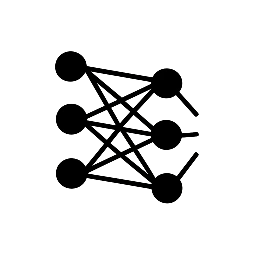Top Resources for Learning AI Online
Embarking on your machine learning and artificial intelligence journey can feel overwhelming. With countless resources available, it’s crucial to follow a structured path that builds your knowledge systematically. More importantly, while certificates are valuable, a strong portfolio of practical projects is what will truly set you apart in this competitive field. Here’s a curated roadmap to guide your learning journey.


First Semester: Building Solid Foundations
Your first semester should focus on understanding core concepts and developing practical skills. Here are the essential resources:
1. Andrew Ng’s Machine Learning Specialization (Coursera)
- Why it’s essential: This is the gold standard for ML fundamentals. Ng’s teaching style makes complex concepts accessible, and the certificate carries significant weight in the industry.
- Key topics: Linear regression, logistic regression, neural networks, unsupervised learning, and best practices in ML development.
2. Python Programming
- Resources:
- W3 Schools (for quick reference and basics)
- freeCodeCamp (for hands-on practice and projects)
- Why Python: It’s the lingua franca of ML/AI. Mastering Python fundamentals is non-negotiable before diving into specialized libraries.
3. Essential Reading
- “Machine Learning with Python Cookbook”: This practical guide bridges theory and implementation with real-world code examples you can immediately apply.
- “AI Engineering” by Chip Huyen: Provides the crucial big-picture perspective on building production-ready AI systems that scale.
4. The AI Engineer Course 2025: Complete AI Engineer Bootcamp (Udemy)
- Why it’s valuable: This comprehensive course transforms theoretical knowledge into practical skills through hands-on projects. It covers the entire AI pipeline from data preprocessing to deployment, giving you portfolio-worthy projects that demonstrate your capabilities to employers.
- Link: The AI Engineer Course 2025: Complete AI Engineer Bootcamp
Second Semester: Advancing Your Expertise
With fundamentals mastered, it’s time to specialize and tackle more complex topics. These resources will deepen your knowledge and expand your portfolio:
1. Andrew Ng’s Deep Learning Specialization (Coursera)
- Why it’s essential: The natural progression after his ML course, this specialization dives deep into neural networks and their applications.
- Key topics: Deep learning fundamentals, convolutional networks, sequence models, and practical applications.
2. LLM Engineering: Master AI, Large Language Models & Agents (Udemy)
- Why it’s valuable: As LLMs revolutionize AI applications, this course provides cutting-edge knowledge on working with models like GPT and building applications around them. The portfolio projects will demonstrate your expertise in one of AI’s most in-demand specializations.
- Link: LLM Engineering: Master AI, Large Language Models & Agents
Why Your Portfolio Matters More Than Certificates
While certificates validate your knowledge, your portfolio is your real currency in the ML/AI job market. Employers want to see what you can actually build. Each of the recommended courses includes practical projects that you can showcase:
- Demonstrate problem-solving skills: Show how you approach complex problems
- Highlight technical implementation: Prove you can translate theory into working code
- Showcase end-to-end development: From data collection to model deployment
- Illustrate specialization: Highlight your expertise in specific areas, like agents or LLMs
Remember to document your projects thoroughly on GitHub or a personal website, explaining the problem, your approach, the technologies used, and the results achieved. A well-curated portfolio with 3-4 impressive projects will make you stand out more than a wall of certificates.
Final Thoughts
This roadmap provides a balanced approach to learning ML/AI, combining theoretical knowledge with practical application. By following this path, you’ll build a strong foundation in your first year and develop specialized expertise in your second year, all while creating a portfolio that demonstrates your capabilities to potential employers.
The field of AI is evolving rapidly, and continuous learning is essential. These resources will give you a solid start, but remember that the most successful practitioners combine formal learning with curiosity, experimentation, and real-world problem-solving.
— Dal Skoric

Leave a Reply